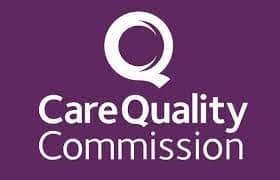Banbury and Chipping Norton area dermatology business forced to suspend activity after inspection
and live on Freeview channel 276
The Care Quality Commission (CQC) inspected Andrew James Dermatology, with clinics in Banbury, Chipping Norton and Leamington, on September 28, 2023. They said safety, effectiveness and responsiveness were inadequate and the ‘caring’ element requires improvement.
On October 3, owner Andrew Elliott, based at Stourton, near Shipston, was issued with an urgent notice to suspend registration for six months.
Advertisement
Hide AdAdvertisement
Hide AdMr Elliott, who runs the business and is sole practitioner, described the CQC as ‘overbearing’ and likened it to Ofsted.


He said on registration last February, he had been told an inspection would be within 12 – 18 months but it took place after six months, giving him inadequate time to put all processes in place.
“I had a business plan in place to make my business caring, effective, responsive, well led… and I was given verbally the idea (the inspection) would be after 12 - 18 months, but (the inspectors) came unexpectedly at six months. How can I put everything together in a third or half of the time I was expected to do it?” he said.
The determatology service offers treatments for patients include mole mapping, skin lesion identification, general minor surgery, superficial skin surgery, incisional skin surgery and general dermatological consultations.
Advertisement
Hide AdAdvertisement
Hide AdThe service treats both adults and children. Inspectors found chaperoning was undertaken by a staff member of staff working in the building, not directly employed. However, the manager had not ensured the chaperone was trained or had a Disclosure and Barring Service (DBS) check.
Inspectors were not assured there was an effective system to manage infection prevention and control and there was no healthcare waste disposal system.
Inspectors said that patient records examined were of poor quality. Photos of patients’ moles were not kept on a clinical IT system but on a private mobile phone with identification only through the date and time recorded.
The report said there was no provision of suitable medicines to deal with medical emergencies apart from an EpiPen to treat anaphylaxis and there was no policy in place for recording and acting on significant events.
Advertisement
Hide AdAdvertisement
Hide AdMr Elliott said: "I'm an advanced clinical practitioner with a master's degree. I've worked in general practice since 2014 where I’ve developed my knowledge in management, based on a comprehensive programme of learning involving courses, attending lectures, reading and attending professional development learning forums.”
Mr Elliott described the CQC as ‘a monolithic organisation with very poor communication channels’ that was not listening to people.
"They are one size fits all. They show no empathy, no compassion, no understanding,” he said. "I'm a one man band and they treat me the same as a huge multinational company methodologically.
"We recognised that in a small business I would need a lot of time to put little bits and pieces in place because I haven't got a clinical governance department. Hospitals… are resourced to make sure their clinical governance is up to scratch. As an independent I haven’t got that so there needs to be some degree of flexibility in assessing and managing that person.”
The full report is available here.